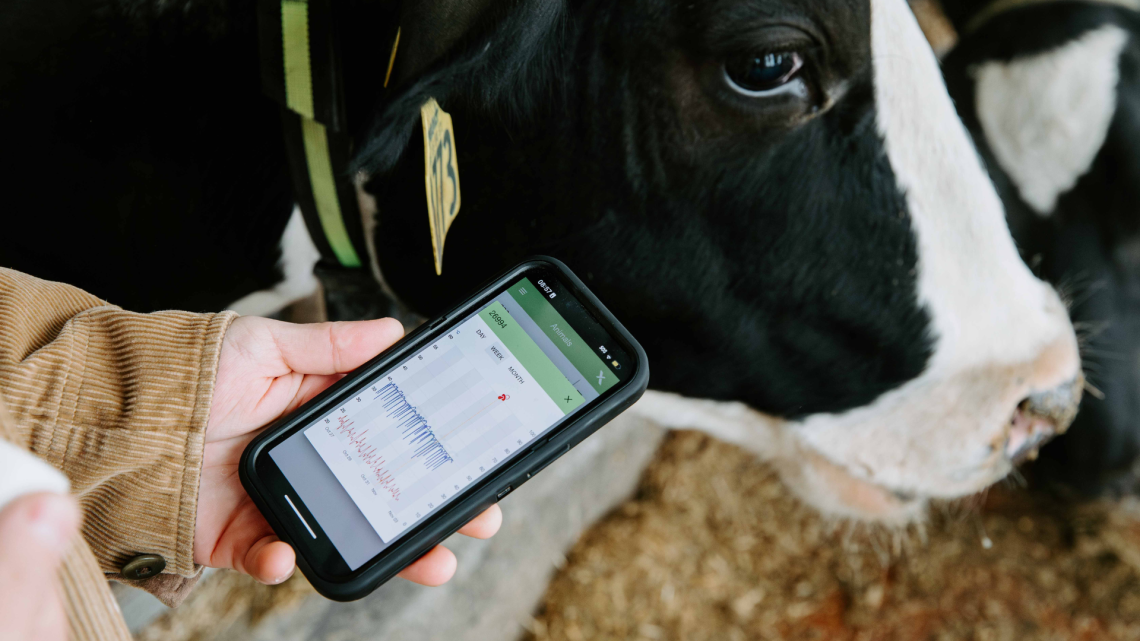Cornell University has been awarded a portion of a $2 million planning initiative from the U.S. National Science Foundation to establish AI4Ag, a national testbed for artificial intelligence in agriculture.
The AI4Ag project aims to create an “AI-ready living lab” within the Cornell Agricultural Systems Testbed and Demonstration Site (CAST) for the Farm of the Future, operated under the Cornell Institute for Digital Agriculture (CIDA), where researchers, students and industry partners can develop and safely test AI innovations under large, real-world farming and commercial-like conditions.
“AI-driven innovations have the potential to address major challenges, including reduced farm profitability, labor shortages, animal disease, pest management, food safety, and weather variability,” said Julio Giordano, professor of dairy cattle biology and management in the department of animal science in the College of Agriculture and Life Sciences (CALS), and director and principal investigator at CAST. “By making it easier to test, refine and share new ideas and AI tools, our goal is for AI4Ag to demonstrate the potential of AI to transform agriculture and contribute to a more sustainable and resilient US food system.”
This initial phase of the project, according to Giordano, will lay the groundwork with a strategic plan and governance structure — including executive leadership, testbed management, a research steering committee and an advisory board — to guide AI innovation. Priorities include building a multidisciplinary external user community, strengthening CAST’s infrastructure, demonstrating AI-readiness through integrated data and creating operational frameworks that allow external partners to access and benefit from the testbed.
AI4Ag is led through CIDA, which brings together expertise from engineering, computing, life sciences, veterinary medicine and social sciences. CIDA’s mission is to build a dynamic community of researchers, industry partners, farmers, and students who collaborate to create efficient and sustainable food systems.
As co-director of CIDA, Giordano, along with other co-directors Renata Ivanek Ph.D.’08, professor of epidemiology at the College of Veterinary Medicine, Hakim Weatherspoon, professor of computer science at Cornell Ann S. Bowers College of Computing and Information Science, and Fengqi You, Roxanne E. and Michael J. Zak Professor of Energy Systems Engineering at Cornell Engineering, also serve as co-principal investigators on the grant — bringing important interdisciplinary approaches to the project.
“Projects like this would not be possible if we didn’t have the cross-collaboration perspectives, ideas and skill sets that CIDA brings together,” Giordano said.
CAST, a “Farm of the Future” program supported by USDA, advances data-driven solutions for climate-smart agriculture. Its ecosystem of three commercial-scale farms serves as a hub for research, extension and education in field crops and dairy production — two of the most significant sectors of the U.S. agricultural economy.
Researchers working at CAST integrate existing and emerging digital technologies in environments that closely replicate commercial farming. This approach allows scientists to address pressing challenges, including the need for increased efficiencies, labor shortages and sustainability, while generating insights that can be applied across farms nationwide.
“By embedding AI4Ag within CAST, Cornell is uniquely positioned to accelerate the design, evaluation and deployment of AI solutions that can make farms more efficient, resilient and sustainable,” Giordano said.
Source - https://news.cornell.edu













